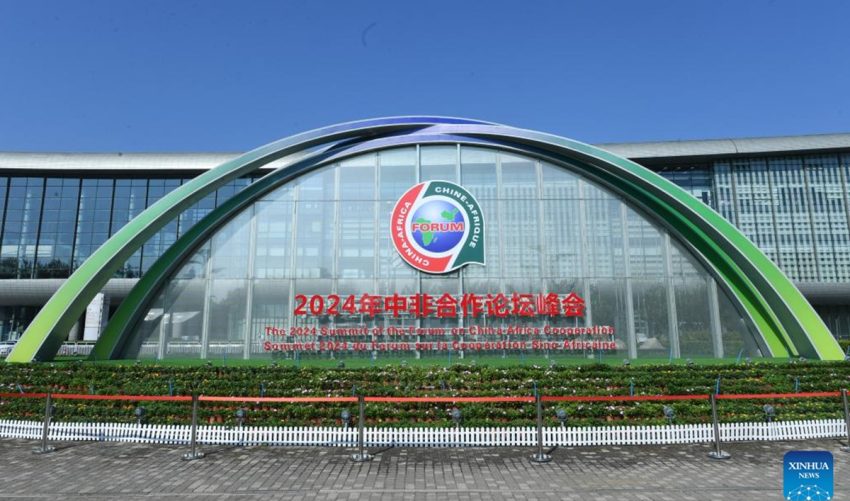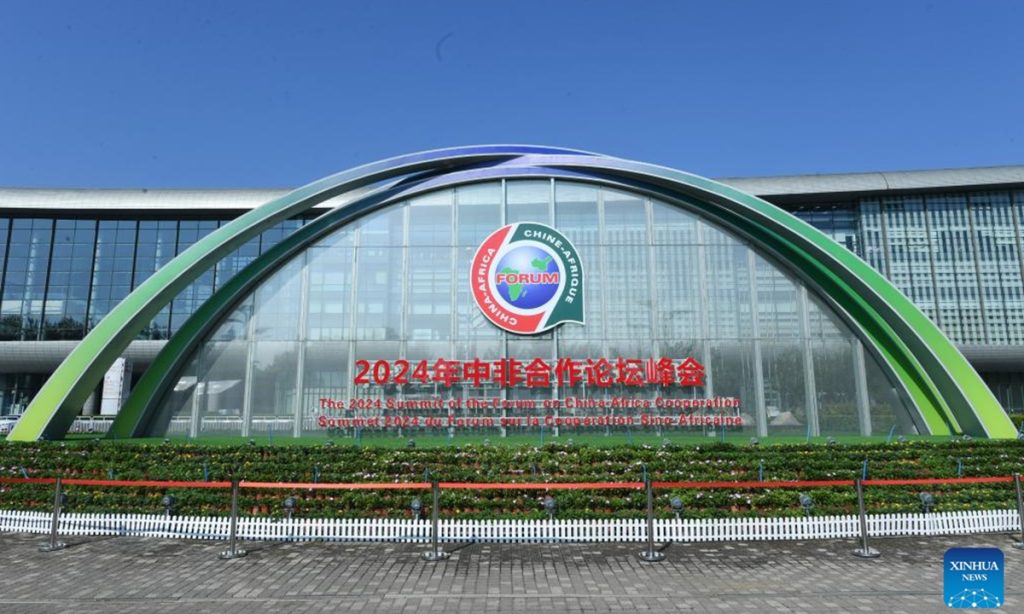
FOCAC stresses security collaboration; 'focuses align with global political, economic devt needs'

The 2024 Summit of the Forum on China-Africa Cooperation (FOCAC) has placed significant focus on security, with experts emphasizing the importance of fostering a comprehensive and developmental approach to security collaboration.
A declaration on building an all-weather China-Africa community with a shared future for the new era was adopted on Thursday, along with an action plan to guide FOCAC over the next three years.
China will join hands with Africa to establish and implement a Global Security Initiative partnership, build a demonstration zone of Global Security Initiative and conduct early-stage cooperation of the Global Security Initiative, according to the action plan.
The two sides will continue to hold the series of meetings of the China-Africa Peace and Security Forum, improve its professional standards, strengthen its institutional building, and encourage more exchanges between Chinese and African young and middle-aged military officials.
We reiterate that we will have closer coordination and cooperation on African peace and security affairs in the UN Security Council and to uphold our common interests. China is ready to promote the channeling of more global counterterrorism resources to developing countries, and work with African countries to enhance their capacity building of fighting against terrorism and violent extremism, according to the action plan.
The High-Level Meeting on Peace and Security was held on Thursday afternoon, among the four high-level meetings held concurrently at the National Convention Center.
"China-Africa security cooperation is based on a comprehensive and developmental approach to fostering security collaboration," said Li Wei, a research fellow and security expert from the China Institutes of Contemporary International Relations.
Without security, development will be difficult to sustain. Therefore, China-Africa cooperation is not just about economic and trade collaboration, and security cooperation is also an indispensable aspect, Li noted.
Liu Qinghai, a professor at the Institute of African Studies of Zhejiang Normal University, told the Global Times that in contrast to the previous forums, this year's forum focuses not only on the traditional security issues but also new elements such as cybersecurity and artificial intelligence, nuclear safety, and biosafety. "It aligns with the current global political and economic development needs and is of great significance," he noted.
In light of global wealth disparities, technological gaps, and diverse cultures, along with hegemonic surveillance and sanctions, there's a critical need for enhanced cybersecurity, AI development, and biosafety governance, as well as nuclear non-proliferation efforts, to address security challenges and foster modernization in China, Africa, and the Global South, according to Liu.
Shen Xiaolei, a research assistant at the Institute of West Asian and African Studies of the Chinese Academy of Social Sciences, told the Global Times that as African countries' demand for strategic autonomy and independent security grows, China-Africa cooperation in cultivating Africa's independent security capabilities is another highlight.


